BEUTLER LABORATORY
Research
To understand how the gut and the brain communicate with each other to maintain body weight and appetite, we use a variety of techniques including calcium imaging, optogenetics, chemogenetics, and RNA sequencing in genetically modified mice.
Projects in the lab focus both on fundamental mechanisms by which information about nutrients in the gastrointestinal tract are transmitted to the brain, and how this communication changes in diseases where energy homeostasis and appetite are dysregulated.
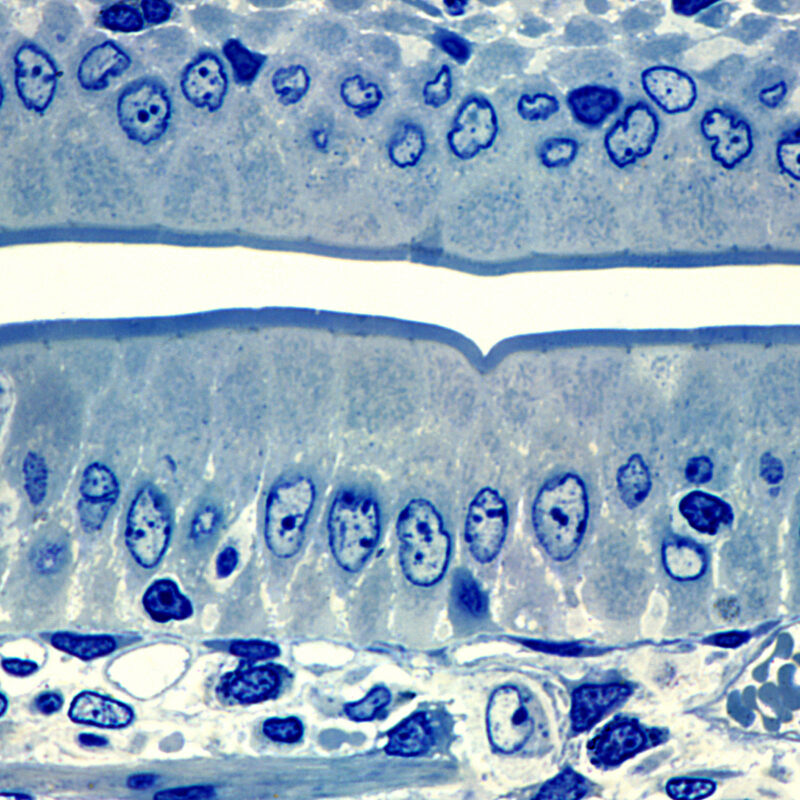
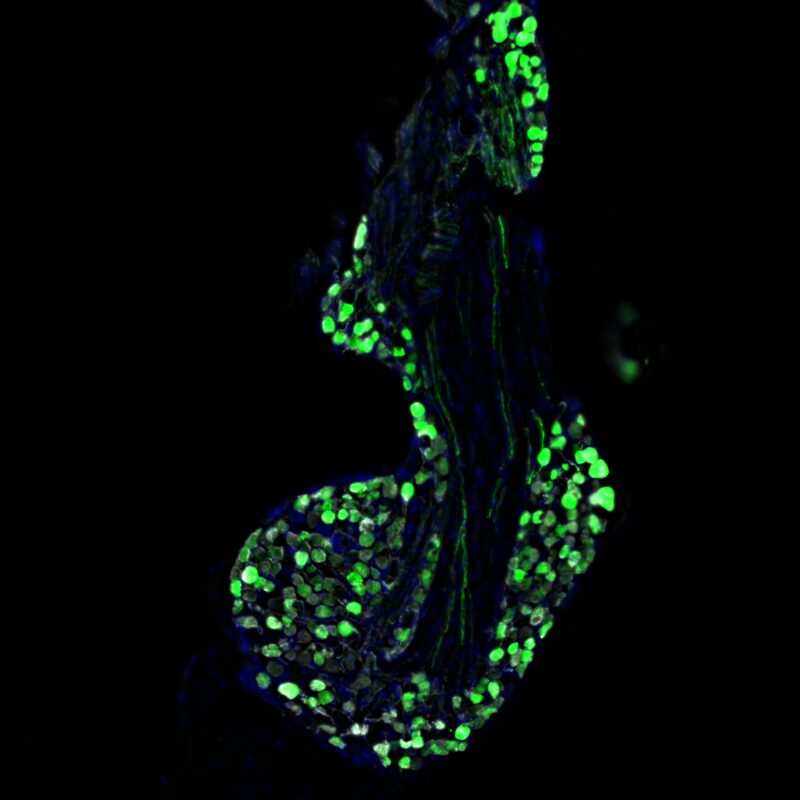
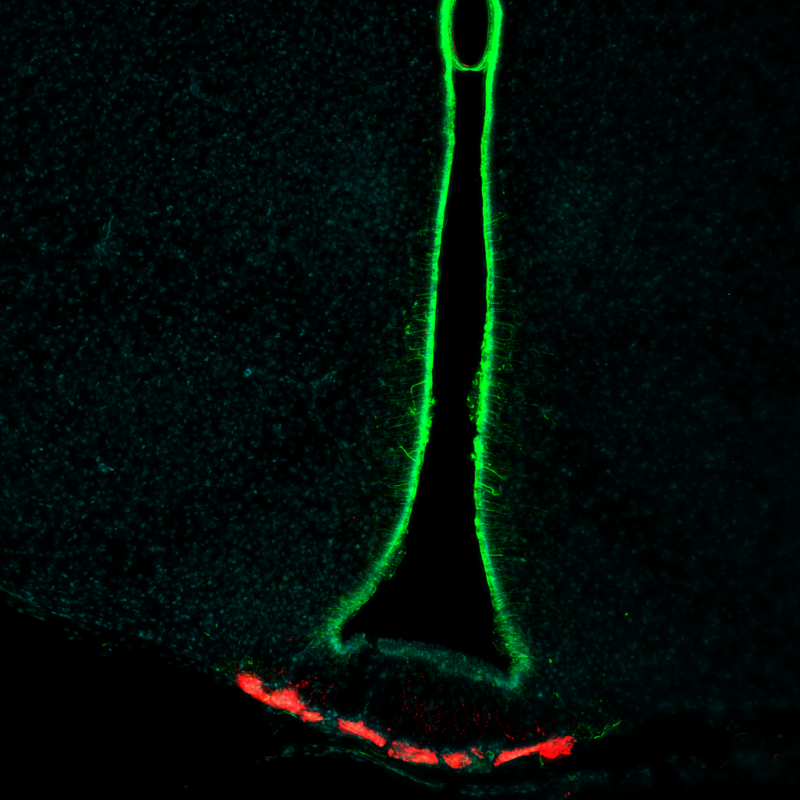
Our lab studies the gut-brain axis at the level of the intestine, peripheral sensory nerves, and the brain.
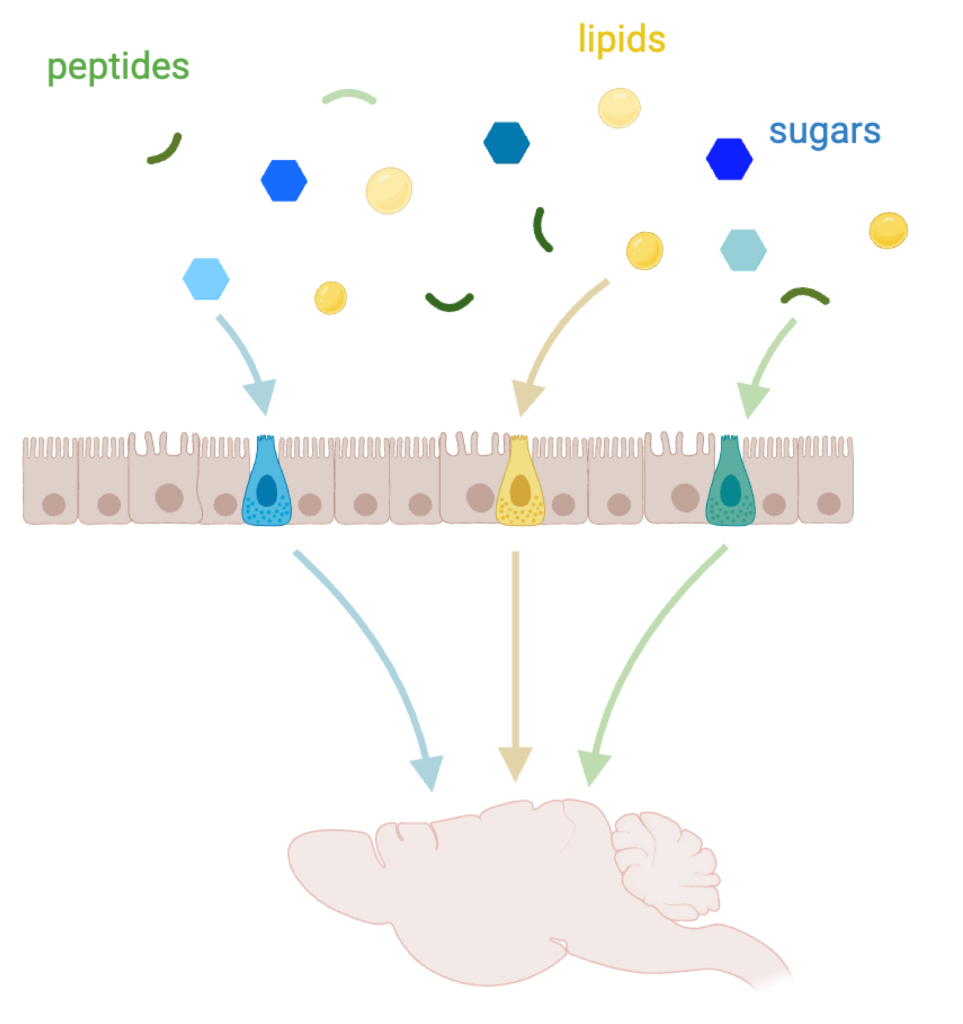
beutler laboratory projects
Mechanisms of nutrient-mediated gut-brain communication
Mounting evidence from our group and others suggests that different macronutrients communicate with the brain using different molecular mechanisms and neural circuits. However, the details of these mechanisms remain incompletely understood.
Our group is using in vivo calcium imaging, optogenetics, gastrointestinal surgical manipulation, and RNA sequencing to dissect how different fats, sugars, and proteins modulate neural activity in awake mice, and how this in turn impacts feeding behavior and physiology.
beutler laboratory projects
Disrupted gut-brain communication in diet-induced obesity
We and others have shown that high-fat diet induced obesity alters the activity of critical hunger neurons (AgRP neurons) in ways that may promote weight gain and overconsumption of palatable, nutrient-dense foods. More recent data from our group showed that a high-sugar diet has both similar and distinct effects on AgRP neuron activity (Lorch et al, 2024).
Understanding how different types of obesogenic diets impact neural activity across different feeding centers in the brain is a major goal of the lab.
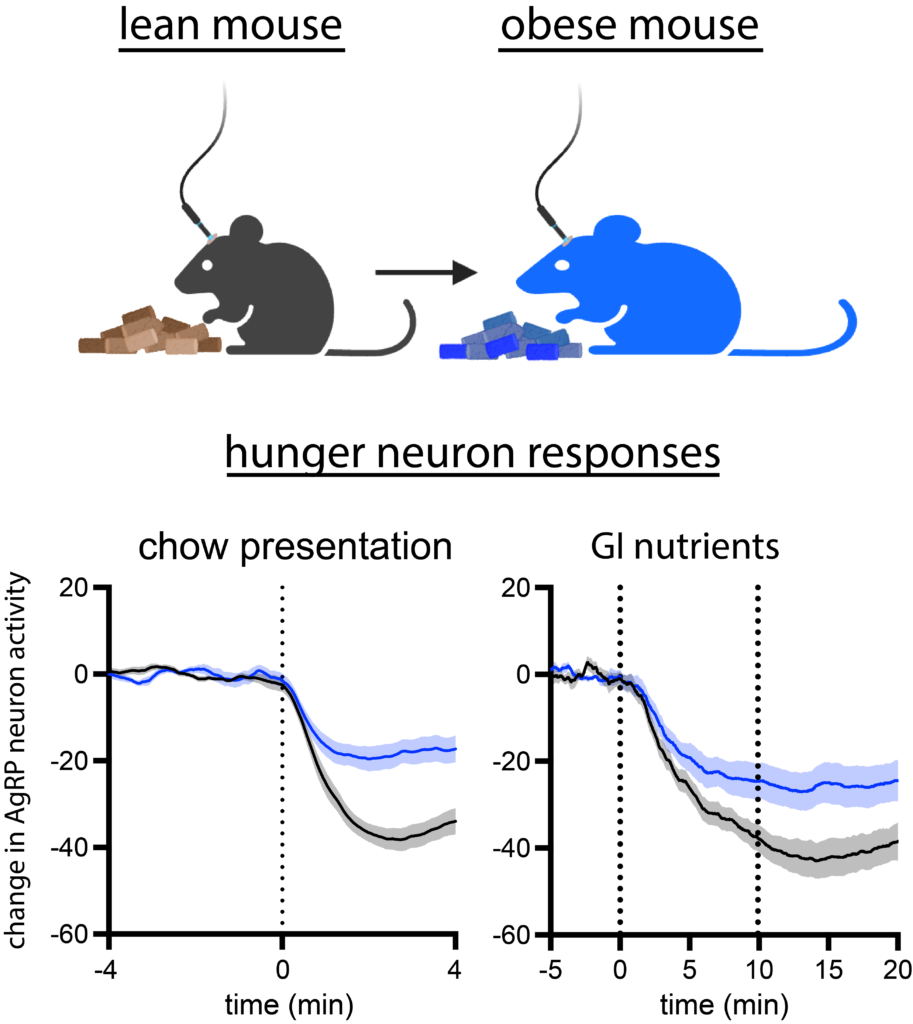
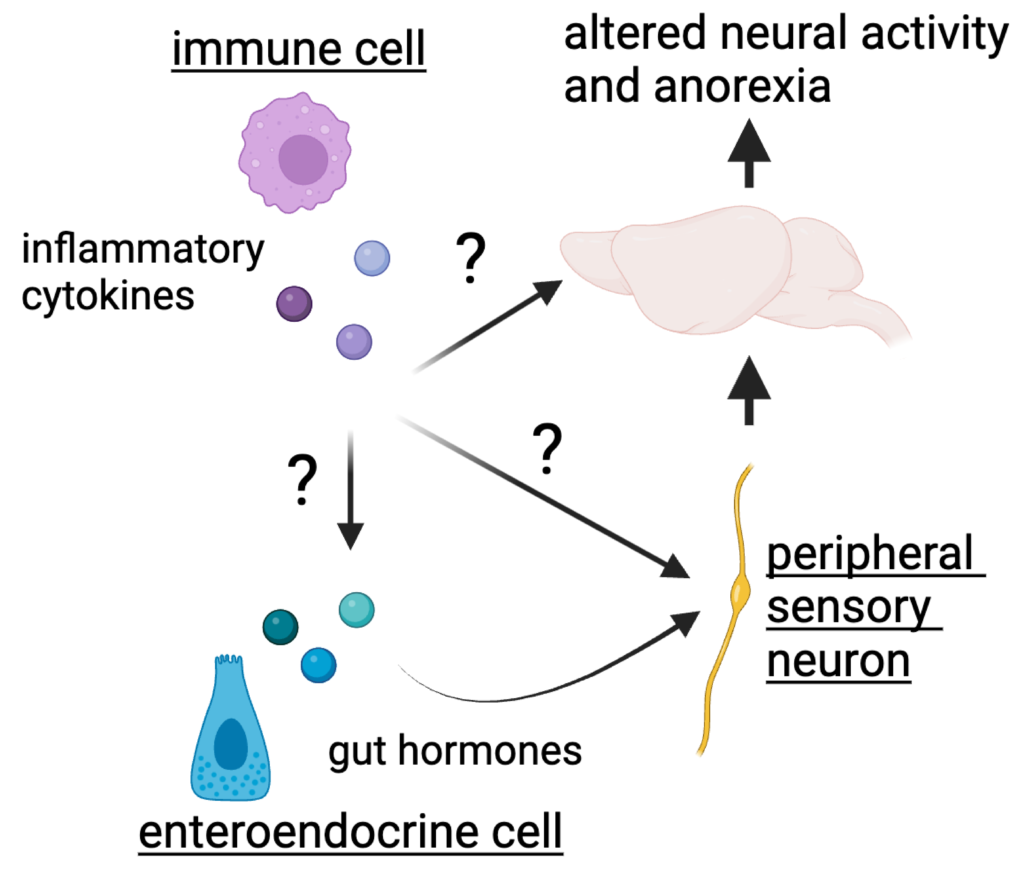
Schematics created with biorender.com
beutler laboratory projects
Mechanisms of inflammation-induced anorexia
Severe, chronic inflammation can cause a range of sickness behaviors including loss of appetite. Prolonged decreases in food intake cause significant morbidity and reduce quality of life for patients with inflammatory diseases.
But the mechanisms underlying inflammation-induced anorexia remain incompletely understood. We aim to understand how inflammatory signals disrupt the gut-brain axis at the molecular, cellular, and circuit levels.
Please reach out if you are interested in joining our team!
Members of our small lab work closely with one another, and with colleagues throughout our division and the school of medicine, to tackle fundamental questions about gut-brain communication and energy balance.

